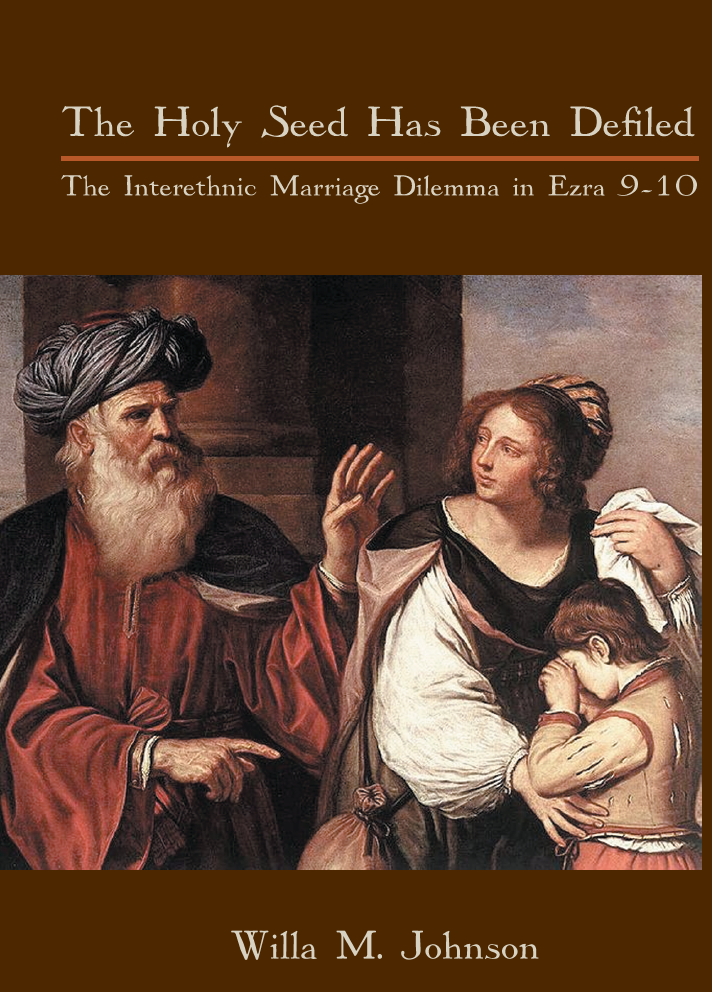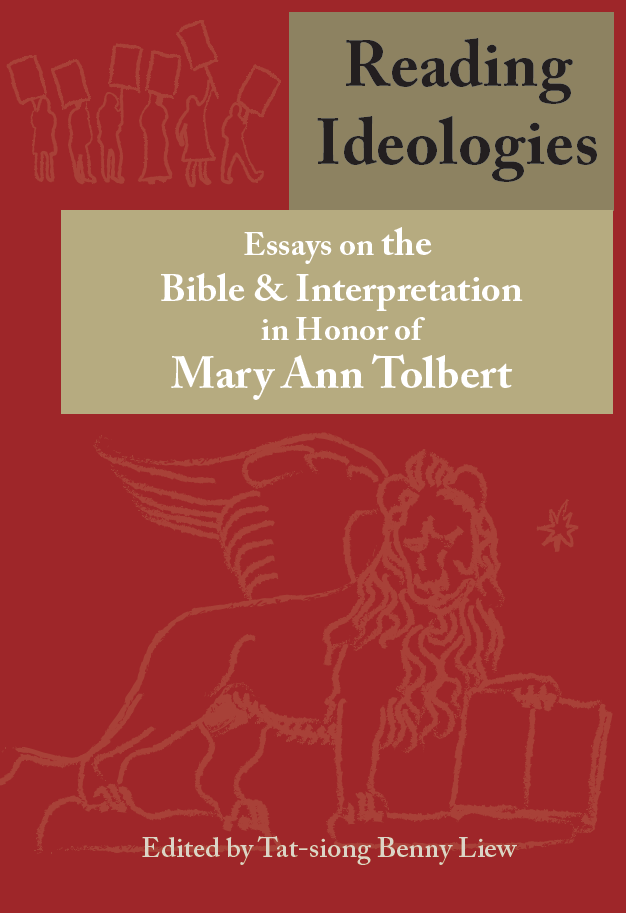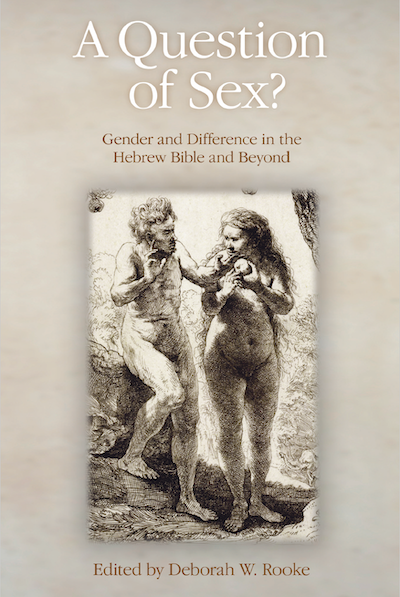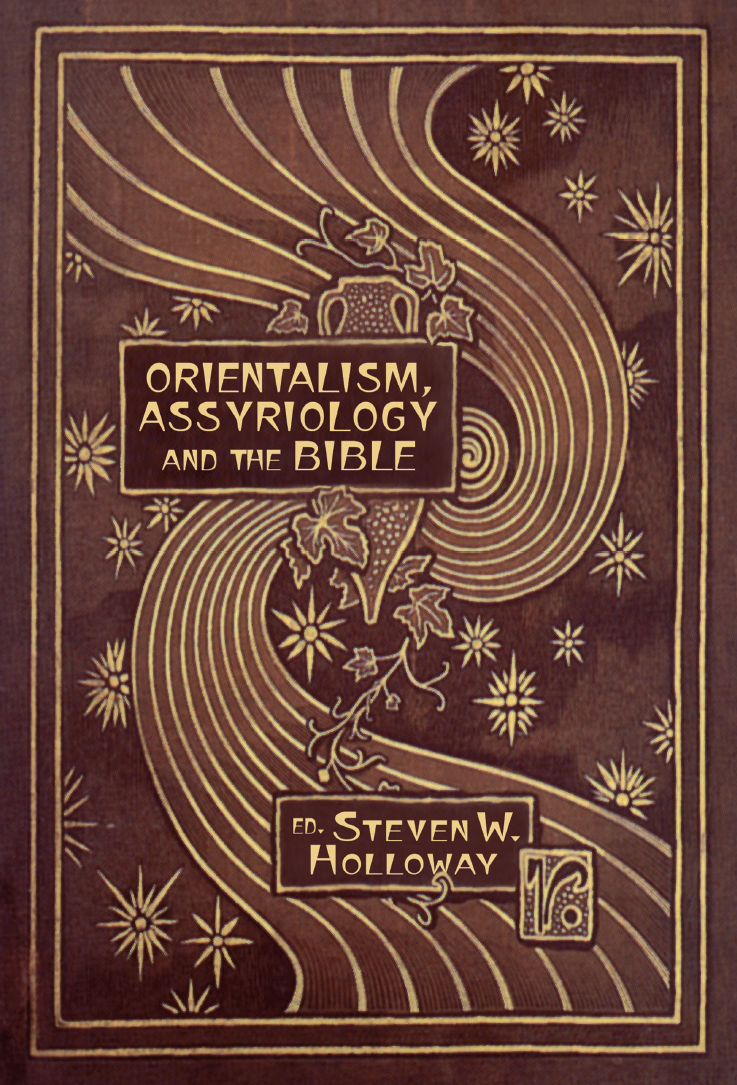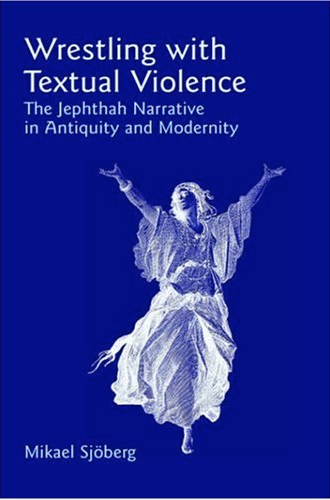Abject Bodies in the Gospel of Mark
Published: July 2012
Price range: £22.50 through £50.00
Basing himself on Judith Butler’s notion of gender, abjectness, vulnerability, and the precariousness of the human body, Manuel Villalobos offers a compelling study of a number of characters in Mark’s passion narrative whom he finds to be transgressing boundaries and disrupting their assigned gender roles. He then applies the same methodology to Jesus, queering the Markan passion narrative, and concludes that because it was subject to all kinds of physical abuses Jesus’ body is the way by which God becomes identified and fully implicated in the life of those who live at the margins of society.
The whole book, exegetically rich and imaginative, is grounded on a hermeneutic which Villalobos terms Del otro lado / from the other side, because it celebrates the kind of ambiguity produced by gender, racial, cultural, and ethnic otherness, interweaving (often harrowing) tales of village life in Mexico with interpretations of specific Markan episodes. In so doing he hopes to initiate a dialogue between the Northern and the Southern hemispheres, a dialogue that crosses the boundaries that separate and exclude people because of economic and legal statuses and, specially, sexual orientation. The end product is a fresh and totally destabilizing reading that accomplishes the difficult task of bringing to the fore those voices neglected by the history of the interpretation of the text.
Abject Bodies in the Gospel of Mark
Price range: £22.50 through £50.00
Basing himself on Judith Butler’s notion of gender, abjectness, vulnerability, and the precariousness of the human body, Manuel Villalobos offers a compelling study of a number of characters in Mark’s passion narrative whom he finds to be transgressing boundaries and disrupting their assigned gender roles. He then applies the same methodology to Jesus, queering the Markan passion narrative, and concludes that because it was subject to all kinds of physical abuses Jesus’ body is the way by which God becomes identified and fully implicated in the life of those who live at the margins of society.
The whole book, exegetically rich and imaginative, is grounded on a hermeneutic which Villalobos terms Del otro lado / from the other side, because it celebrates the kind of ambiguity produced by gender, racial, cultural, and ethnic otherness, interweaving (often harrowing) tales of village life in Mexico with interpretations of specific Markan episodes. In so doing he hopes to initiate a dialogue between the Northern and the Southern hemispheres, a dialogue that crosses the boundaries that separate and exclude people because of economic and legal statuses and, specially, sexual orientation. The end product is a fresh and totally destabilizing reading that accomplishes the difficult task of bringing to the fore those voices neglected by the history of the interpretation of the text.
Reading Ideologies: Essays on the Bible and Interpretation in Honor of Mary Ann Tolbert
Published: Sep 2011
£75.00
Mary Ann Tolbert has been a pioneering voice in what we have now come to call 'interdisciplinary reading' of the Bible. In the early stages of her career, Tolbert used New Testament parables to push biblical scholarship beyond the traditional confines of historical-critical methods. Over the past four decades, she has made significant contributions to psychoanalytical, narrative, rhetorical, feminist, and queer readings of the Bible, and has interrogated the social location of biblical interpreters as well as the ideological implications of reading and reading methodologies.
Divided into three main sections, this collection of essays from biblical scholars around the world to honor Tolbert engage the very issues that have driven and defined Tolbert's scholarship: reading between the historical and the literary; reading between biblical authority and social location; and reading between gender and sexuality. The title of the collection focuses on an often-used but arguably under-examined term in biblical studies: 'ideology'. Together, essays in this volume not only perform ideological criticism of the Bible but also profess the ideological nature of criticism itself, since —regardless of 'what' and 'how' one is reading —the act of reading is always already infused with ideology. By highlighting the work of ideology in interpretation, this volume ultimately suggests that while ideology impacts interpretation of meaning, the meaning of ideology itself also needs to be interpreted.
Reading Ideologies: Essays on the Bible and Interpretation in Honor of Mary Ann Tolbert
£75.00
Mary Ann Tolbert has been a pioneering voice in what we have now come to call 'interdisciplinary reading' of the Bible. In the early stages of her career, Tolbert used New Testament parables to push biblical scholarship beyond the traditional confines of historical-critical methods. Over the past four decades, she has made significant contributions to psychoanalytical, narrative, rhetorical, feminist, and queer readings of the Bible, and has interrogated the social location of biblical interpreters as well as the ideological implications of reading and reading methodologies.
Divided into three main sections, this collection of essays from biblical scholars around the world to honor Tolbert engage the very issues that have driven and defined Tolbert's scholarship: reading between the historical and the literary; reading between biblical authority and social location; and reading between gender and sexuality. The title of the collection focuses on an often-used but arguably under-examined term in biblical studies: 'ideology'. Together, essays in this volume not only perform ideological criticism of the Bible but also profess the ideological nature of criticism itself, since —regardless of 'what' and 'how' one is reading —the act of reading is always already infused with ideology. By highlighting the work of ideology in interpretation, this volume ultimately suggests that while ideology impacts interpretation of meaning, the meaning of ideology itself also needs to be interpreted.
Men and Masculinity in the Hebrew Bible and Beyond
Published: Nov 2010
£60.00
The study of masculinity in the Bible is increasingly becoming established as a field of critical inquiry in biblical gender studies. This book highlights a variety of methodological approaches that reveal the complex and multifaceted construction of masculinity in biblical and post-biblical literature. It focuses uniquely and explicitly on men and the world they inhabit, documenting changes in the type of men and masculinities deemed legitimate, or illegitimate, across various social and historical contexts of the ancient Near East. At the same time, it interrogates readers' assumptions about the writers' positioning of male bodies, sexuality and relationships in a gender order created to reflect men's interests, yet in need of constant reordering.
In this volume specific features of biblical masculinity are explored: the masculinity of less favoured sons in Genesis (Susan Haddox); the ideology of Temple masculinity in Chronicles (Roland Boer); the masculinity of Moses (Brian DiPalma); the performative nature of masculinity in the Sinai episode (David Clines); Deuteronomy's regimentation of masculinity (Mark George); Joshua's hegemonic masculinity in the Conquest Narrative (Ovidiu Creangă); Naaman's disability in relation to ideologies of masculinity (Cheryl Strimple and Ovidiu Creangă); Job's position as a man in charge in the Testament of Job (Maria Haralambakis); Priestly notions of sexuality in the covenant of the rainbow and circumcision in Genesis (Sandra Jacobs); Samson's masculinity in terms of male honour (Ela Lazarewicz-Wyrzykowska); the popular depiction of Jeremiah as a 'lamenting prophet' against the book of Jeremiah's male ideology (C.J. Patrick Davis); the gendered interaction of a Bible-study group with Daniel's dreams (Andrew Todd). Finally, David Clines and Stephen Moore offer closing critical reflections that situate the book's topics within a broader spectrum of issues in masculinity.
Men and Masculinity in the Hebrew Bible and Beyond
£60.00
The study of masculinity in the Bible is increasingly becoming established as a field of critical inquiry in biblical gender studies. This book highlights a variety of methodological approaches that reveal the complex and multifaceted construction of masculinity in biblical and post-biblical literature. It focuses uniquely and explicitly on men and the world they inhabit, documenting changes in the type of men and masculinities deemed legitimate, or illegitimate, across various social and historical contexts of the ancient Near East. At the same time, it interrogates readers' assumptions about the writers' positioning of male bodies, sexuality and relationships in a gender order created to reflect men's interests, yet in need of constant reordering.
In this volume specific features of biblical masculinity are explored: the masculinity of less favoured sons in Genesis (Susan Haddox); the ideology of Temple masculinity in Chronicles (Roland Boer); the masculinity of Moses (Brian DiPalma); the performative nature of masculinity in the Sinai episode (David Clines); Deuteronomy's regimentation of masculinity (Mark George); Joshua's hegemonic masculinity in the Conquest Narrative (Ovidiu Creangă); Naaman's disability in relation to ideologies of masculinity (Cheryl Strimple and Ovidiu Creangă); Job's position as a man in charge in the Testament of Job (Maria Haralambakis); Priestly notions of sexuality in the covenant of the rainbow and circumcision in Genesis (Sandra Jacobs); Samson's masculinity in terms of male honour (Ela Lazarewicz-Wyrzykowska); the popular depiction of Jeremiah as a 'lamenting prophet' against the book of Jeremiah's male ideology (C.J. Patrick Davis); the gendered interaction of a Bible-study group with Daniel's dreams (Andrew Todd). Finally, David Clines and Stephen Moore offer closing critical reflections that situate the book's topics within a broader spectrum of issues in masculinity.
A Question of Sex? Gender and Difference in the Hebrew Bible and Beyond
Published: Dec 2009
Price range: £17.50 through £45.00
Gender differences between men and women are not just a matter of sexual differentiation; the roles that men and women play are also socially and culturally determined, in ancient Israel and post-biblical Judaism as in every other context.
That is the theme of these ten studies. The first part of the volume examines the gender definitions and roles that can be identified in the Hebrew Bible's legal and ritual texts. The second part uses archaeological and anthropological perspectives to interrogate the biblical text and the society that formed it on issues of gender. The third part explores similar gender issues in a range of material outside the Hebrew Bible, from the Apocrypha through Josephus and Philo down to mediaeval Jewish marriage contracts (ketubbot).
Among the questions here discussed are: Why are men, but not women, required to bathe in order to achieve ritual purity after incurring certain types of defilement? What understandings of masculinity and femininity underlie the regulations about incest? Was ancient Israel simply a patriarchal society, or were there more complex dynamics of power in which women as well as men were involved? What do post-biblical re-interpretations of the female figures of Wisdom and Folly in Proverbs 1 —9 suggest about heterosexual masculinity? And what kind of rights did mediaeval Middle-Eastern Jewish women have within their marriage relationships?
This is the first volume in the sub-series King's College London Studies in the Bible and Gender. The second is Embroidered Garments: Priests and Gender in Biblical Israel (2009).
A Question of Sex? Gender and Difference in the Hebrew Bible and Beyond
Price range: £17.50 through £45.00
Gender differences between men and women are not just a matter of sexual differentiation; the roles that men and women play are also socially and culturally determined, in ancient Israel and post-biblical Judaism as in every other context.
That is the theme of these ten studies. The first part of the volume examines the gender definitions and roles that can be identified in the Hebrew Bible's legal and ritual texts. The second part uses archaeological and anthropological perspectives to interrogate the biblical text and the society that formed it on issues of gender. The third part explores similar gender issues in a range of material outside the Hebrew Bible, from the Apocrypha through Josephus and Philo down to mediaeval Jewish marriage contracts (ketubbot).
Among the questions here discussed are: Why are men, but not women, required to bathe in order to achieve ritual purity after incurring certain types of defilement? What understandings of masculinity and femininity underlie the regulations about incest? Was ancient Israel simply a patriarchal society, or were there more complex dynamics of power in which women as well as men were involved? What do post-biblical re-interpretations of the female figures of Wisdom and Folly in Proverbs 1 —9 suggest about heterosexual masculinity? And what kind of rights did mediaeval Middle-Eastern Jewish women have within their marriage relationships?
This is the first volume in the sub-series King's College London Studies in the Bible and Gender. The second is Embroidered Garments: Priests and Gender in Biblical Israel (2009).
Embroidered Garments: Priests and Gender in Biblical Israel
Published: Oct 2009
£45.00
This collection of essays, the proceedings of an international conference held at King's College London in 2008, explores issues in the construction of gender that appear in the Hebrew Bible both in relation to priesthood itself and in literature with a priestly world-view (the P source, Chronicles, Ezra —Nehemiah, Ezekiel). Topics covered include female religious functionaries and their absence from the Hebrew Bible, masculinity and femininity as seen through the lens of priestly purity legislation, priestly genealogies as an expression of Jacques Derrida's 'archive fever', the definition of masculinity that is evidenced by priests' clothing, and the marginalization of women in priestly ideologies of nationality and kinship.
This is the second volume in the sub-series King's College London Studies in the Bible and Gender. The first was A Question of Sex: Gender and Difference in the Hebrew Bible and Beyond (2007).
Embroidered Garments: Priests and Gender in Biblical Israel
£45.00
This collection of essays, the proceedings of an international conference held at King's College London in 2008, explores issues in the construction of gender that appear in the Hebrew Bible both in relation to priesthood itself and in literature with a priestly world-view (the P source, Chronicles, Ezra —Nehemiah, Ezekiel). Topics covered include female religious functionaries and their absence from the Hebrew Bible, masculinity and femininity as seen through the lens of priestly purity legislation, priestly genealogies as an expression of Jacques Derrida's 'archive fever', the definition of masculinity that is evidenced by priests' clothing, and the marginalization of women in priestly ideologies of nationality and kinship.
This is the second volume in the sub-series King's College London Studies in the Bible and Gender. The first was A Question of Sex: Gender and Difference in the Hebrew Bible and Beyond (2007).
With Eyes of Flesh: The Bible, Gender and Human Rights
Published: Aug 2008
Price range: £19.50 through £50.00
Carole Fontaine, well known among biblical scholars for her feminist studies in the biblical wisdom traditions and the ancient Near East, is also a human rights and interfaith activist working on issues of violence against Muslim women in the Middle East and Southern Asia and a board member of many agencies such as the International Network for the Rights of Female Victims of Violence in Pakistan, and the Women's Forum against Fundamentalism in Iran.
In this collection of her essays, mostly previously unpublished, she brings together these two concerns, distilling from the scriptures of Judaism, Christianity and Islam valuable insights into current questions of human rights. Unlike many writers, Fontaine recognizes the critical role of gender in the fundamental concept of the 'Other', so determinative for our view of humanity.
In our days, Fontaine argues, human rights issues have taken on a new dimension in political discourse about war, peace and terror, where often an appeal is made to religious and scriptural justifications for the violation or preservation of rights. Fontaine urges attention to the priority of the sufferer in adjudicating meaning, and turns to the 'little texts' of daily ethics rather than grand theological abstractions in order to place 'scriptures' in meaningful conversation with the concrete realities of our world.
This is the second volume of the Amsterdam Studies in the Bible and Religion (ed. Athalya Brenner), a sub-series of the Bible in the Moden World.
With Eyes of Flesh: The Bible, Gender and Human Rights
Price range: £19.50 through £50.00
Carole Fontaine, well known among biblical scholars for her feminist studies in the biblical wisdom traditions and the ancient Near East, is also a human rights and interfaith activist working on issues of violence against Muslim women in the Middle East and Southern Asia and a board member of many agencies such as the International Network for the Rights of Female Victims of Violence in Pakistan, and the Women's Forum against Fundamentalism in Iran.
In this collection of her essays, mostly previously unpublished, she brings together these two concerns, distilling from the scriptures of Judaism, Christianity and Islam valuable insights into current questions of human rights. Unlike many writers, Fontaine recognizes the critical role of gender in the fundamental concept of the 'Other', so determinative for our view of humanity.
In our days, Fontaine argues, human rights issues have taken on a new dimension in political discourse about war, peace and terror, where often an appeal is made to religious and scriptural justifications for the violation or preservation of rights. Fontaine urges attention to the priority of the sufferer in adjudicating meaning, and turns to the 'little texts' of daily ethics rather than grand theological abstractions in order to place 'scriptures' in meaningful conversation with the concrete realities of our world.
This is the second volume of the Amsterdam Studies in the Bible and Religion (ed. Athalya Brenner), a sub-series of the Bible in the Moden World.
Orientalism, Assyriology and the Bible
Published: Oct 2007
Price range: £22.50 through £60.00
'Orientalism' refers both to the academic study of the Orient and to Western scholarship that clings to stock images of the timeless East and oriental despotism. This landmark collection of essays, the first in its field, is written by seasoned art historians, Assyriologists and biblical specialists; it is organized under four rubrics:
1. Intellectual and Disciplinary Histories identifies waymarks in the rise of Assyriology in America, shifting images of ancient Assyria in their cultural context, Smithsonian Institution exhibits of 'biblical antiquities' at the world's fairs of 1893 and 1895, the rise of Egyptology in the nineteenth century, Mari scholarship and its impact on biblical studies, and the ancient Near Eastern text anthology as genre (Foster, Frahm, Holloway Reid, Younger).
2. Visual Perspectives suggests itself as a corrective to the academic habit of conjuring a 'texted Orient'. Here are contributions that describe Assyrianizing engravings in the famous Dalziels' Bible Gallery, the reception of ancient Assyria in nineteenth-century England versus France, and artwork for twentieth-century American histories of Israel (Bohrer, Esposito, Long).
3. Of Harems and Heroines explores gender issues in the context of the figure of Semiramis and the idea of the harem in biblical research and Assyriology (Asher-Greve, Solvang).
4. Assyriology and the Bible offers essays that focus on specific figures (Josiah), texts (Genesis 28.10-22, the Uruk Prophecy), or periods (Persian period in biblical historiography) (Grabbe, Handy, Hurowitz, Scurlock).
The volume includes a Bibliography of some 1000 items, an important resource.
Orientalism, Assyriology and the Bible
Price range: £22.50 through £60.00
'Orientalism' refers both to the academic study of the Orient and to Western scholarship that clings to stock images of the timeless East and oriental despotism. This landmark collection of essays, the first in its field, is written by seasoned art historians, Assyriologists and biblical specialists; it is organized under four rubrics:
1. Intellectual and Disciplinary Histories identifies waymarks in the rise of Assyriology in America, shifting images of ancient Assyria in their cultural context, Smithsonian Institution exhibits of 'biblical antiquities' at the world's fairs of 1893 and 1895, the rise of Egyptology in the nineteenth century, Mari scholarship and its impact on biblical studies, and the ancient Near Eastern text anthology as genre (Foster, Frahm, Holloway Reid, Younger).
2. Visual Perspectives suggests itself as a corrective to the academic habit of conjuring a 'texted Orient'. Here are contributions that describe Assyrianizing engravings in the famous Dalziels' Bible Gallery, the reception of ancient Assyria in nineteenth-century England versus France, and artwork for twentieth-century American histories of Israel (Bohrer, Esposito, Long).
3. Of Harems and Heroines explores gender issues in the context of the figure of Semiramis and the idea of the harem in biblical research and Assyriology (Asher-Greve, Solvang).
4. Assyriology and the Bible offers essays that focus on specific figures (Josiah), texts (Genesis 28.10-22, the Uruk Prophecy), or periods (Persian period in biblical historiography) (Grabbe, Handy, Hurowitz, Scurlock).
The volume includes a Bibliography of some 1000 items, an important resource.
Wrestling with Textual Violence: The Jephthah Narrative in Antiquity and Modernity
Published: Oct 2006
£50.00
A story of a judge who sacrifices his virgin daughter is of course an issue both in ethics and in gender studies. Such is the biblical narrative of Jephthah. Sjöberg undertakes a comparative analysis of six different versions of the Jephthah narrative: the biblical tale in the book of Judges, the Jewish telling in Pseudo-Philo's Liber antiquitatum biblicarum (first century CE), Josephus's report in his Jewish Antiquities (also first century CE), Handel's oratorio Jephtha (1751), the British author E.L. Grant Watson's novel A Mighty Man of Valour (1939), set in Australia, and the short story by the Israeli novelist Amos Oz, 'Upon This Evil Earth' (1981).
Five main interpretative strategies are uncovered in this remarkable analysis: condemnation, identification, glorification, alienation and censure. Each strategy affects in different ways the reader's assessment of power relations in the story and the reader's own willingness to change.
In a final move, Sjöberg embarks on a critical discussion of the programmes of Elisabeth Schüssler Fiorenza and Daniel Patte for an ethics of biblical interpretation. Sjšberg advocates an interpretative pluralism, arguing that biblical studies should stand in the service of the general public.
Wrestling with Textual Violence: The Jephthah Narrative in Antiquity and Modernity
£50.00
A story of a judge who sacrifices his virgin daughter is of course an issue both in ethics and in gender studies. Such is the biblical narrative of Jephthah. Sjöberg undertakes a comparative analysis of six different versions of the Jephthah narrative: the biblical tale in the book of Judges, the Jewish telling in Pseudo-Philo's Liber antiquitatum biblicarum (first century CE), Josephus's report in his Jewish Antiquities (also first century CE), Handel's oratorio Jephtha (1751), the British author E.L. Grant Watson's novel A Mighty Man of Valour (1939), set in Australia, and the short story by the Israeli novelist Amos Oz, 'Upon This Evil Earth' (1981).
Five main interpretative strategies are uncovered in this remarkable analysis: condemnation, identification, glorification, alienation and censure. Each strategy affects in different ways the reader's assessment of power relations in the story and the reader's own willingness to change.
In a final move, Sjöberg embarks on a critical discussion of the programmes of Elisabeth Schüssler Fiorenza and Daniel Patte for an ethics of biblical interpretation. Sjšberg advocates an interpretative pluralism, arguing that biblical studies should stand in the service of the general public.
Reframing Her: Biblical Women in Postcolonial Focus
Published: Jun 2006
Price range: £15.95 through £35.00
How does one read the story of Sarah and Hagar, or Jezebel and Rahab today, if one is a woman reader situated in a postcolonial society?
This is the question undergirding this work, which considers a selection of biblical texts in which women have significant roles. Employing both a gender and a postcolonial lens, it asks sharp questions both of the interests embedded in the texts themselves and of their impact upon contemporary women readers.
Whereas most postcolonial studies have been undertaken from the perspective of the colonized this work reads the texts from the position of a settler descendant, and is an attempt to engage with the disquietening and challenging questions that reading from such a location raises. Letters from early settler women in New Zealand, contemporary fiction, and personal reminiscence become tools for the task, complementing those traditionally employed in critical biblical readings.
Reframing Her: Biblical Women in Postcolonial Focus
Price range: £15.95 through £35.00
How does one read the story of Sarah and Hagar, or Jezebel and Rahab today, if one is a woman reader situated in a postcolonial society?
This is the question undergirding this work, which considers a selection of biblical texts in which women have significant roles. Employing both a gender and a postcolonial lens, it asks sharp questions both of the interests embedded in the texts themselves and of their impact upon contemporary women readers.
Whereas most postcolonial studies have been undertaken from the perspective of the colonized this work reads the texts from the position of a settler descendant, and is an attempt to engage with the disquietening and challenging questions that reading from such a location raises. Letters from early settler women in New Zealand, contemporary fiction, and personal reminiscence become tools for the task, complementing those traditionally employed in critical biblical readings.


